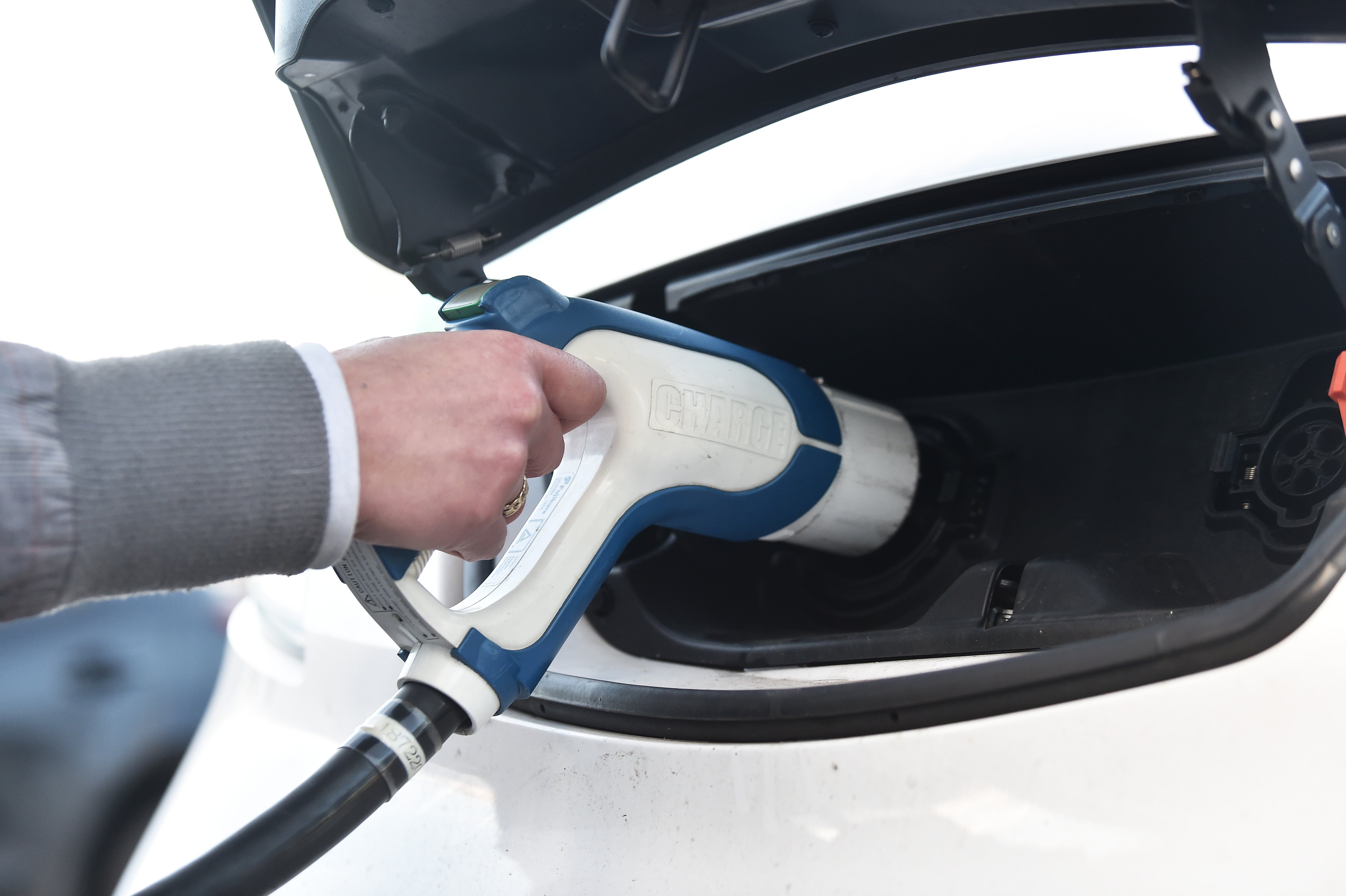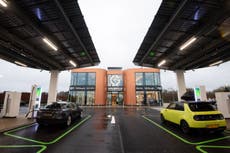Fuel tax revenue lost to rise of electric cars needs to be plugged, says Treasury
Shortfall of roughly £30bn a year requires tax rises or reduction in government spending

The government will have to raise taxes or reduce its spending to compensate for the drop in fuel tax revenue brought about by electric cars, the Treasury has said.
In an interim review into the UK’s net zero pledge, the department said a solution was needed to plug the large hole that will be left in the public finances.
In 2019, fuel tax generated £28bn for the exchequer, equivalent to 1.3 per cent of the national income, according to the Institute for Fiscal Studies (IFS).
This money could be recouped by a scheme to tax people for each mile they drive. However, this proposal has been branded as a “poll tax on wheels” by critics.
Instead, the AA has recommended a “Road Miles” solution, whereby each driver gets 3,000 free miles - or 4,000 for those living in rural areas - and then pays a “small charge” for additional mileage.
As well as spelling out the need for a tax solution, the Treasury’s report highlights the financial benefits of developing a greener economy, including the creation of new jobs.
Published just weeks after the government decided to bring forward a ban on petrol cars to 2030, the review has been welcomed by environmental charities.
In response, Rebecca Newsom, head of politics at Greenpeace UK, said: ”The principles set out in this report have the potential to provide the foundations needed to ensure the new low carbon economy born from a green recovery benefits everyone.”
However, some commentators believe the Treasury still has not seen the full economic benefit of decarbonising the economy.
Nick Mabey, who works at the e3g think tank, told the BBC that the Treasury “still underplays the benefits of cleaner air and healthier cities”.
Join our commenting forum
Join thought-provoking conversations, follow other Independent readers and see their replies
Comments


Bookmark popover
Removed from bookmarks